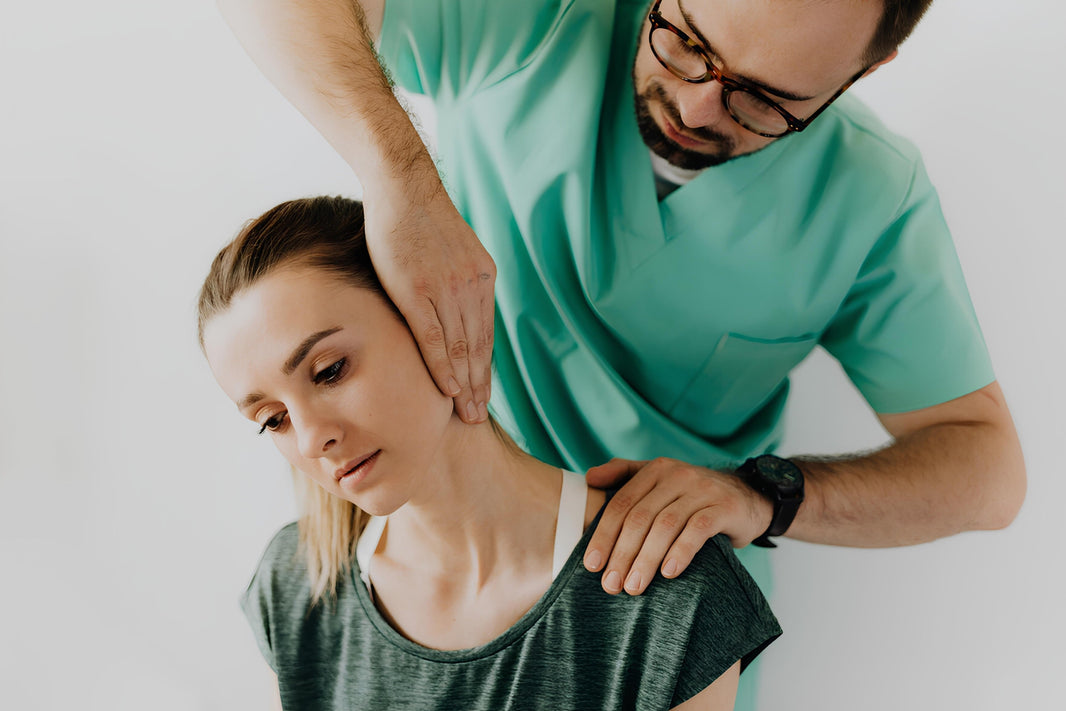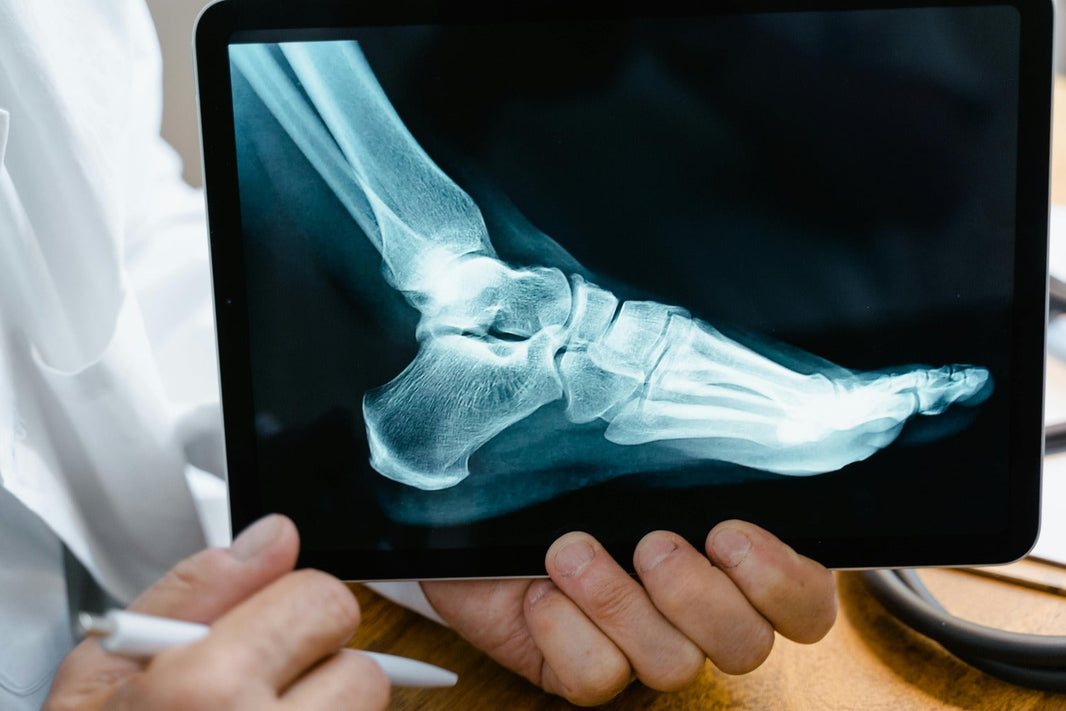Recovering from bone surgery is a journey that requires attention to every aspect of healing including nutrition. While calcium and vitamin D often steal the spotlight in discussions about bone health, there's an underrated player that deserves just as much attention: Vitamin K2. Emerging research highlights its crucial role in bone healing and overall skeletal health making it a potential game-changer for post surgical recovery.
In this blog, we’ll explore how Vitamin K2 supports bone repair, its unique mechanisms in the body and practical ways to include it in your recovery plan all backed by scientific evidence.
Understanding Vitamin K2 and Its Role in Post-Surgical Bone Health
Vitamin K2 is a fat-soluble vitamin that belongs to the larger vitamin K family. While Vitamin K1 is well-known for its role in blood clotting, Vitamin K2 primarily supports bone and cardiovascular health. It activates proteins that regulate calcium directing it to the bones where it’s needed while preventing it from accumulating in blood vessels.
This function is especially critical during post-surgical recovery when bones are rebuilding. Post surgery the body requires optimal calcium deposition and regulation to ensure the repair process is smooth and effective. Vitamin K2 facilitates this by activating two key proteins:
-
Osteocalcin: Helps bind calcium to the bone matrix, enhancing bone mineral density.
-
Matrix Gla-Protein (MGP): Prevents calcium deposits in soft tissues, reducing the risk of vascular calcification.
The Science Behind Vitamin K2 and Post Surgical Bone Healing
Post surgical bone healing is a complex process involving three main stages: inflammation, bone production and remodeling. Vitamin K2 plays a significant role during the latter two stages. Here's how:
1. Enhancing Bone Formation
Studies show that Vitamin K2 enhances the production and activation of osteocalcin a protein essential for bone mineralization. Active osteocalcin ensures calcium is efficiently incorporated into the bone matrix, strengthening the newly forming bone at the surgical site.
A 2017 study published in the Journal of Nutritional Science and Vitaminology highlighted that patients with adequate Vitamin K2 levels had improved bone density and quality suggesting its role in accelerating healing after fractures and surgeries.
2. Supporting Bone Remodeling
Once the bone has been formed, the remodeling phase begins. This process involves replacing old bone tissue with new tissue to maintain strength and functionality. Vitamin K2 contributes to this phase by ensuring a balanced calcium distribution, which prevents the formation of brittle or weak bones.
3. Reducing Inflammation
Surgery often triggers an inflammatory response which if uncontrolled, can hinder bone healing. Vitamin K2 has been found to have anti-inflammatory properties that may help reduce inflammation, creating an environment conducive to faster recovery.
Vitamin K2 Deficiency: A Hidden Roadblock in Post Surgical Recovery
Despite its importance, Vitamin K2 deficiency is surprisingly common. Modern diets, often rich in processed foods, rarely include sufficient sources of this nutrient. Post surgical patients, in particular, are at greater risk because their nutrient demands are higher. A lack of Vitamin K2 can result in poor calcium regulation leading to suboptimal bone healing or complications such as delayed union or non-union of fractures.
Symptoms of deficiency may include easy bruising, excessive bleeding, and signs of weak or fragile bones over time.
Sources of Vitamin K2 for Post Surgical Recovery
Incorporating Vitamin K2 into your diet can be a practical way to support your recovery. Here are some of the richest natural sources of Vitamin K2:

Fermented Foods: Natto (fermented soybeans) is one of the best sources of Vitamin K2, particularly in its MK-7 form, which has a longer half-life in the body.

Animal Products: Egg yolks, cheese (especially Gouda and Brie) and organ meats like liver contain moderate amounts of Vitamin K2.

Supplements: If dietary sources are insufficient or unappealing, Vitamin K2 supplements, typically in MK-4 or MK-7 forms, can be a convenient option.
Vitamin K2 and Calcium: A Perfect Pair for Post Surgical Bone Health
Vitamin K2 works along with calcium and Vitamin D for bone health. While calcium provides the raw material for bone repair, Vitamin D improves calcium absorption in the gut and Vitamin K2 ensures calcium is properly utilized by activating osteocalcin and MGP.
Without Vitamin K2, calcium may be deposited in blood vessels rather than bones potentially leading to vascular calcification and increasing the risk of complications like heart disease, a concern for post surgical patients already at risk.
How Much Vitamin K2 Do You Need?
There’s no official recommended daily allowance (RDA) for Vitamin K2, but research suggests the following dosages may be beneficial for bone health:
-
MK-7 form: 100–200 micrograms per day.
-
MK-4 form: 45 milligrams per day.
It’s always best to consult with your healthcare provider before starting any new supplements, especially post surgery to ensure safety and compatibility with your treatment plan.
Practical Tips for Incorporating Vitamin K2 in Recovery
1. Meal Planning: Add fermented foods like natto or aged cheeses to your meals. For example, a natto stir-fry or a cheese-topped salad can be both nutritious and delicious.
2. Pairing with Fat: Since Vitamin K2 is fat-soluble, consume it with healthy fats like olive oil or avocados for better absorption.
3. Supplementation Timing: If taking a supplement consider pairing it with meals for optimal uptake.
4. Combination Therapy: Ensure you’re also meeting your calcium and Vitamin D needs for a well-rounded approach to bone healing.
The Bottom Line
Recovering from bone surgery requires a multi-faceted approach and nutrition is a cornerstone of this process. Vitamin K2, often overlooked, plays a pivotal role in ensuring calcium is properly utilized for bone repair, reducing inflammation and preventing complications. Whether through diet or supplements, prioritizing this nutrient could make all the difference in your healing journey.
As science continues to uncover more about Vitamin K2’s potential it’s clear that this unsung hero deserves a place in every post surgical recovery plan. By making informed dietary choices and seeking guidance from healthcare professionals, you can support your body in building stronger, healthier bones- one step at a time.
References
-
Iwamoto, J., et al. (2017). Vitamin K2 therapy for postmenopausal osteoporosis. Journal of Nutritional Science and Vitaminology.
-
Elshaikh AO, Shah L, Joy Mathew C, Lee R, Jose MT, Cancarevic I., et al. (2020). Influence of Vitamin K on Bone Mineral Density and Osteoporosis.Cureus.
-
van Ballegooijen AJ, Pilz S, Tomaschitz A, Grübler MR, Verheyen N. (2017). The Synergistic Interplay between Vitamins D and K for Bone and Cardiovascular Health: A Narrative Review. International Journal of Endocrinology.
-
Zhang Y, Liu Z, Duan L, Ji Y, Yang S, Zhang Y, Li H, Wang Y, Wang P, Chen J, Li et al. (2022). Effect of Low-Dose Vitamin K2 Supplementation on Bone Mineral Density in Middle-Aged Chinese: A Randomized Controlled Study. Calcified Tissue International.








